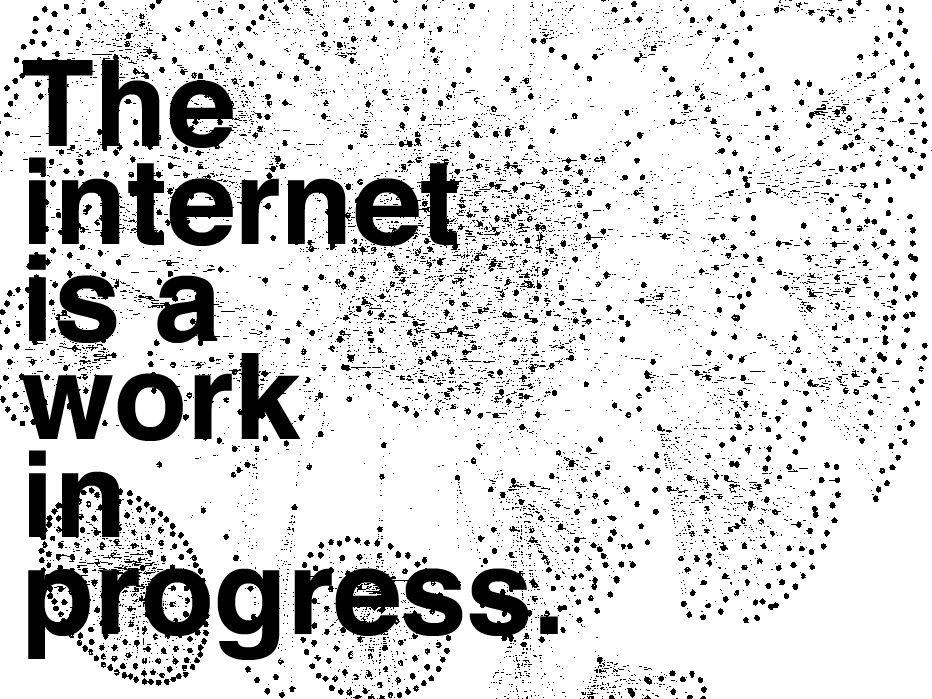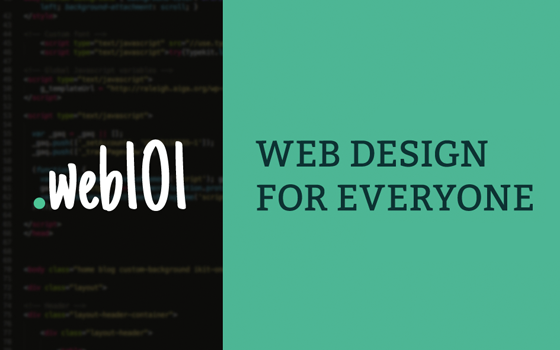
The introductory slide of a presentation that I gave at our annual winter retreat read, “The internet is a work in progress.” I find myself saying this over and over to clients and coworkers alike, reminding them that there’s always going to be another goal, deadline, or even bug to deal with. It’s not like how things were for some web companies a decade ago, when “going live” meant the end of something. Today, it’s just the end of one phase and usually the beginning of another, much longer one.
This past week, Slate featured an article by Farhad Manjoo, titled Jurassic Web, about how the Internet of 1996 is almost unrecognizable compared with what we have today. Here are a couple of paragraphs which will give you the gist of it, and which I think speak to the ‘work in progress’ theme:
“In 1996, Americans with Internet access spent fewer than 30 minutes a month surfing the Web, according to Steve Coffey, who’s now the chief research officer of the market research firm the NPD Group. (Today, we spend about 27 hours a month online, according to Nielsen.) In the mid-’90s, Coffey was working in the R&D department at NPD. He and his colleagues had long ago perfected ways to estimate audience sizes on TV and in print, and they wondered if they could port their ideas to the Web. They came up with something called PC Meter: A focus group of a few thousand people installed an application that would silently track everything they did online, and then Coffey and his colleagues would analyze the data. (Traffic ranking firms still use essentially the same methodology.) The NPD Group spun off Coffey’s work into a new company called Media Metrix. In January 1996, the firm published what seems to be the first independent ranking of the top sites online…
If the Web was so completely different just a decade ago, what will become of it in the next decade? When we look back, will we laugh at how taken we were with YouTube—ooh, you can watch everyone’s home movies!—and puzzle over how Google missed the rise of the Web-searching technology that suddenly sprang up to vanquish it? Maybe. On the other hand, some parts of the Web have become so deeply ingrained in the culture that it’s hard to imagine any force killing them outright. In 2020, we’ll get the Internet over electronic ink scrolls powered by algae or something—but we’ll probably still be spending a lot of time reading Wikipedia.”
One thing that amazes me is that how, in our industry, the work is really never done. The difference in time spent online between 1996 and today is a clear indicator not only of the increase in content and time spent online, but also the increase in dependence we all have on the Web. Though we offer strategic planning consultation to our clients, and are constantly making suggestions for improvements and new things to do with their web applications, our clients don’t really need us to keep the momentum of web activity going at their companies. Even in the face of severe economic downturn, our phones are still ringing and our inboxes are still flooded with client requests. It’s actually pretty exhausting, but thank goodness for it.


